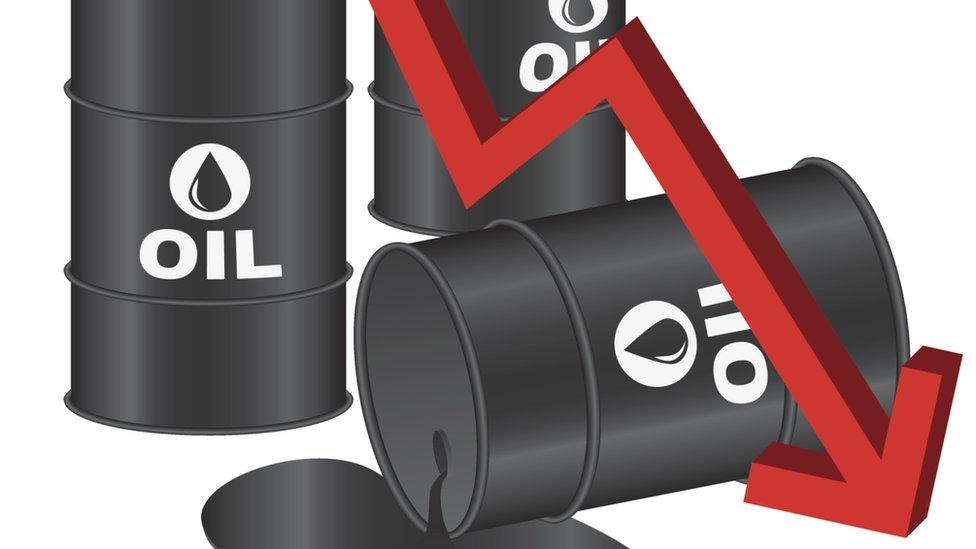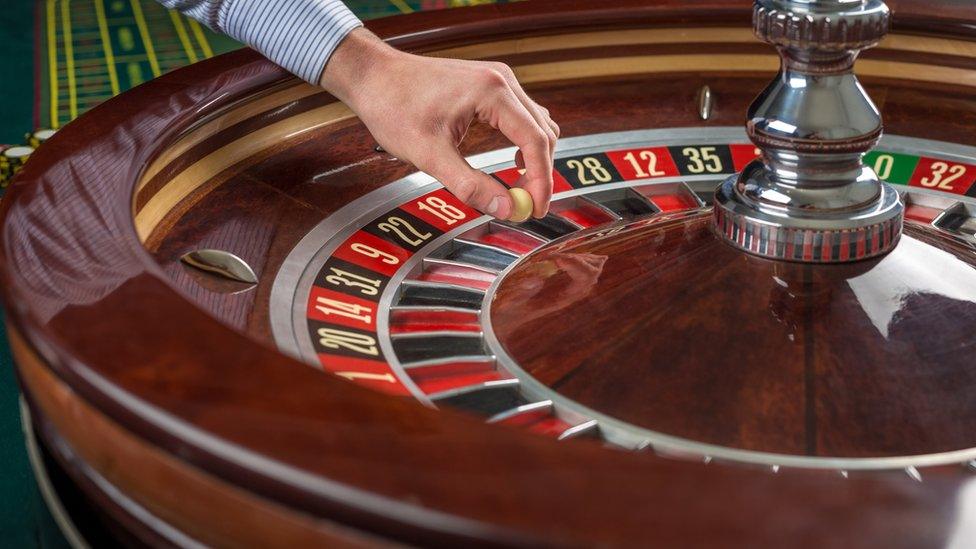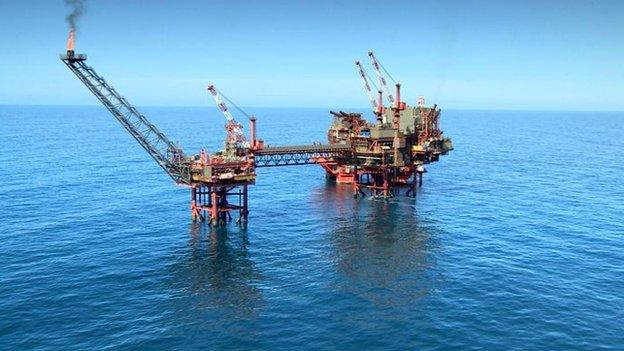Offshore tax goes under water
- Published

Thirty-five million pounds. It's chump change to the Chancellor - some 0.005% of George Osborne's budget. And it's all he got last year from Britain's offshore oil and gas sector.
More than half a billion pounds was raked in through corporation tax on profits. But more than half a billion pounds was rebated because of deductions due to all that recent offshore investment.
The previous year, it had fallen from £1.1bn to only £75m, the lowest since 1993. Last year's balance between corporation tax and petroleum revenue tax rebates was that £35m.
At this level of volatility, it could easily have gone negative.
At its first peak, in the 1980s, offshore revenue topped £12bn. Measured in present day real terms, that wasn't far from being a thousand times greater than it was last year.
To that could be added £2.4bn in royalties, because the government then had a sizeable stake in North Sea operations. These were sold off. From 1988, they raised less than £1bn. The last offshore oil profit dividend was £434m credited to the Treasury in 2002-03.
Tax revenue has clearly fallen a long way, and it's been volatile over the 40 years since the revenue total was last as low as £35m. That was the financial year in which the Queen pushed the starter button on the Forties pipeline.
More recently, it hit two peaks. In 2008-09, as the oil price soared (before it plummeted), the tax take was £12.4bn. Four years ago, it reached £10.9bn. Over the past ten years, the total offshore oil and gas revenue has been more than £70bn.
But the next few years look rather different. As profits fall further, with deductions rising higher, the Office for Budget Responsibility forecasts that there will be a negative tax revenue of around £1bn per year for the next five years.
So much for George Osborne's generosity with his tax giveaways, last year and this. His rate cuts have been applying to profits that weren't up to much anyway.
Labour churn
These HM Revenue and Customs figures, completing its receipts for last year, throw up some other interesting trends over recent years in the way the Treasury makes its money.
The swollen ranks of the self-employed are not feeding through to swelling coffers from self-assessment tax. PAYE was the channel for £146bn last year, up from nearly £140bn. Self-assessed income tax has grown much more slowly over the downturn years of churn in the labour market, to reach £24.1bn in 2015-16.
That figure will have around £5bn stripped out of it in the next set of annual figures, as Scotland starts to take control of income tax.
National insurance contributions have doubled, in cash terms, since the start of the century, to reach £113bn. VAT has also doubled in that time, to £115bn - both of those sources of revenue having seen significant increases in rates.
Accelerator
Total corporation tax take was £44.3bn. That is below three years of bumper takings before the recession hit. Remember when Royal Bank of Scotland profits, under Sir Fred Goodwin, nearly reached £10bn?
Fuel duties have barely shifted since George Osborne became Chancellor and put the brakes on the previous fuel tax accelerator. The total has edged up from £26.2bn to £27.6bn.

The lively London and south-east property market is a help. It fuels the Treasury furnaces through stamp duty on transactions, with £10.7bn in both of the last two years, well over double the revenue during the slump years.
And as inheritance tax is related to the value of the big house that Granny left, the increase in big house values has pushed that up from £3.8bn in '14-15, to £4.7bn last year.
Vices
But what happens to 'vice taxes' when they become too effective? The idea is that putting tax on smoking, gambling and drinking should send a signal that these are things the state would like to discourage. Scotland, for some reason, pays well above its population share of these.
Tobacco tax brought in £9.5bn last year, a slight decrease on '14-15. It's not the first time there has been a fall. But the pattern suggests that the pressure to quit is having an impact on the public finances.

Gamblers aren't getting the message, though. They contributed a 20% rise in gambling revenue last year to £2.7bn.
Beer is frowned on rather less by the lifestyle police. But there has been a significant change in the market for beer, causing the closure of many pubs. The take from beer duty has risen only a bit since the start of this century, and at £3.3bn, it has been falling for four years. That happens also to be the period since the revenue from wine duty overtook beer, to reach nearly £4bn.
Of course, tax rate changes can have an impact on consumption. A lower tax rate can mean a higher tax take. And so it has been with spirits.
That duty distilled some £3.1bn from vodka, gin and rum. And whisky distillers have been toasting the rate cut, with last calendar year seeing the first rise in UK consumption of Scotch after many years of decline.
- Published22 April 2016
